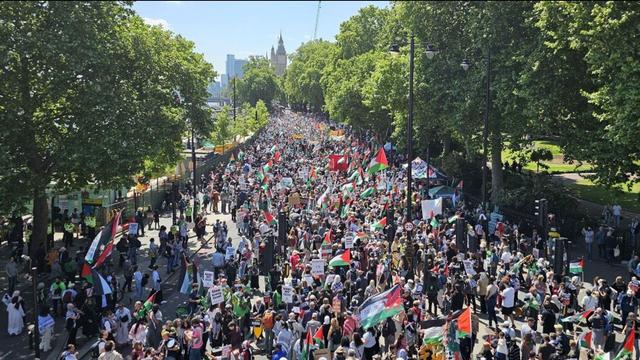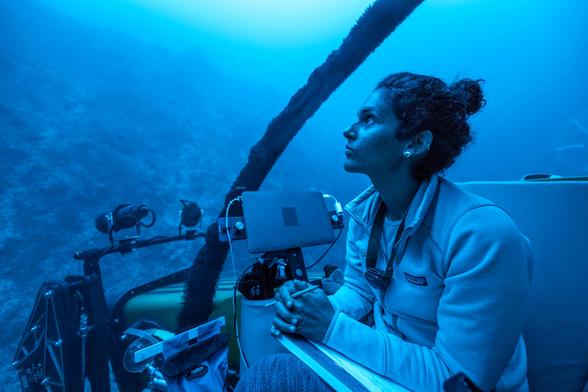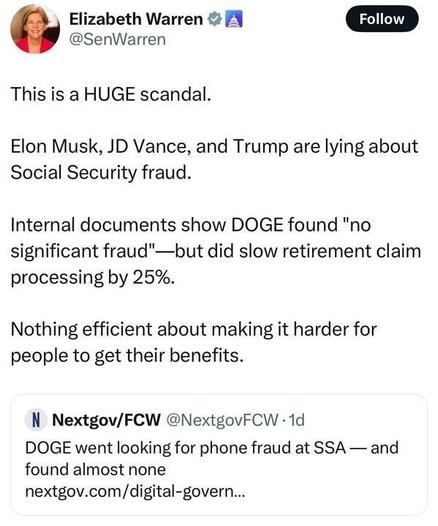The new U.S refugee policy for minority South Africans: Explained
The story so far: The first contingent of 59 Afrikaner refugees arrived from in the United States on May 12, under a new policy that promotes the resettlement of Afrikaners, a white minority group in South Africa, who President Donald Trump has alleged are facing racial discrimination in their home country.
The refugees arrived via a private chartered plane, and landed at Dulles Airport near Washington D.C. They were received by a government delegation including Troy Edgar, deputy Homeland Security secretary, and Christopher Landau, the deputy secretary of state
“Welcome to America….I want you to know that you are really welcome here,” NPR reported Mr. Landau as saying.
What is the policy?
Under the new policy, the U.S has introduced expedited processing of refugee applications from Afrikaners and other South African minorities. To be eligible to be considered for resettlement in the U.S, individuals must be a South African national, of Afrikaner ethnicity or a member of a racial minority, and must have experienced past persecution or fear future persecution.
On May 12, the US Embassy and Consulates in South Africa published a notice about the refugee admissions programme “for Afrikaners and disfavored minorities in South Africa who are victims of unjust racial discrimination,” thus indicating that the programme will continue post this first batch of 59 Afrikaners.
Reports say that processing for these refugees took no more than three months. Agencies, including the U.S Committee for Refugees and Immigrants, are helping refugees settle across States such as Minnesota, Idaho, Iowa, and North Carolina.
A report by The Lever said that the administration plans to use emergency funds to assist these refugees. They shall receive government assistance for seeking employment, temporary or longer term-housing, and schools. Other provisions include: “basic home furnishings, essential household items and cleaning supplies,” as well as help for securing “groceries, weather-appropriate clothing, diapers, formula, hygiene products and prepaid phones that support the day-to-day well-being of households.”
The administration is relying on a refugee office in the Department of Health and Human Services (the traditional route, before a Trump-era suspension of the programme, would have been via the State Department.)
The policy follows an Executive Order signed by Mr. Trump in February, after South Africa passed a land reclamation act that critics deemed racially discriminatory. Titled ‘Addressing Egregious Actions of The Republic of South Africa,’ the order accuses the government of a “shocking disregard of its citizens’ rights.”
“In addition, South Africa has taken aggressive positions towards the United States and its allies, including accusing Israel, not Hamas, of genocide in the International Court of Justice, and reinvigorating its relations with Iran to develop commercial, military, and nuclear arrangements.,“ the order states, stating that the U.S could not support the South African government’s “commission of rights violations” or its undermining of U.S foreign policy, “which poses national security threats to our Nation, our allies, our African partners, and our interests.”
The order institutes a funding freeze as long as these “these unjust and immoral practices” that harm the U.S continue, and also prvovides for the resettlement of Afrikaner refugees “escaping government-sponsored race-based discrimination, including racially discriminatory property confiscation.”
The U.S subsequently clarified that the funding cuts would not affect PEPFAR ( U.S. President’s Emergency Plan for AIDS Relief), which is vital for South Africa, and which now faces an uncertain future after slashing of USAID (United States Agency for International Development) funding.
Within weeks of the executive order, teams were deployed to South African capital Pretoria to screen eligible candidates. From around 8000 interested candidates, 100 were identified as prospects, and 59 left from Johannesburg on May 12.
Why has the policy been instituted?
President Trump has alleged that the Afrikaners, particularly farmers, are suffering racial discrimination, boosting claims of a white genocide, popular among the right and far right wing. He re-iterated that it was not because the farmers were white, stating that their race “makes no difference to me.” He made similar claims in 2018, during his first presidency.
Some of the refugees who arrived in the U.S told media that they had faced threats to their life and attempts to claim their property. Several Afrikaners have previously said they are denied jobs, targeted by criminals or ignored by the government because of their race.
South-African born Elon Musk has also amplified claims about the alleged “white genocide” in South Africa, as have Secretary of State Marco Rubio and Deputy Chief of Staff Stephen Miller. “What’s happening in South Africa fits the textbook definition of why the refugee programme was created,” Mr. Miller said last week. “This is persecution based on a protected characteristic, in this case, race.”
U.S- South Africa ties soured in January after South African President Cyril Ramaphosa signed into law the Expropriation Bill, which allows the government to seize privately owned land in the public interest, without compensation. The Act was reportedly an attempt at equitable land reform: three-fourth of the privately owned land belongs to white farmers. Black South Africans only own about 4% of the land despite forming more than 90% of the population. South Africa maintains that no land has yet been seized.
In March, Ebrahim Rasool, South Africa’s ambassador to the US, was expelled after he accused Trump of using “white victimhood as a dog whistle.” Some fear that U.S may also seek to end preferential access to its market, earlier assured to eligible sub-Saharan African countries through the Africa Growth and Opportunity Act (AGOA) of 2000.
Mr. Ramaphosa and the African National Congress have denied that Afrikaners were suffering persecution that would qualify them for refugee status. “A refugee is someone who has to leave their country out of fear of political persecution, religious persecution, or economic persecution….And they don’t fit that bill,” Mr. Ramaphosa said.
He also reportedly conveyed this in a phone call with Mr. Trump, and South African leaders also sent a diplomatic memo to the State Department last week. Further, in a recent conference in Ivory Coast, Mr. Ramaphosa said he believed the American government “has got the wrong end of the stick here, but we’ll continue talking to them.” He also asserted that the Afrikaners had left because they opposed post-apartheid policies to deal with racial inequality
Mr. Trump has said that South African leaders were travelling to meet him next week, and indicated that he would not attend a G20 meeting in South Africa in November till the “situation is taken care of.”
What about other refugees?
The Trump administration indefinitely suspended the US Refugee Admissions Program (USRAP) in one of Mr. Trump’s first executive actions after he was sworn in on January 20, 2025. The processing of refugee claims and the admission of refugees who had already been cleared to enter the United States were shut down temporarily. Soon after, the government was sued by the International Refugee Assistance project, which alleges that 120,000 conditionally approved refugees have been left uncertain of their future. Judges have directed the government to resume the refugee programme at least for those already been approved to travel, but this is being challenged. Those left in limbo include Afghans who aided the US military in its operations, other Africans suffering from war and famine, and Rohingya fleeing ethnic cleansing.
According to the American Immigration Council, refugee resettlement took one-and-a-half to two years on average, before the first Trump presidency. The process is often difficult to navigate and time-consuming, and the government has cited backlogs and its inability to quickly process new claims. But for this group, processing was fast-tracked. Further, the United Nations High Commissioner for Refugees (the UN refugee arm) noted that it was not involved in the vetting process, which is the usual procedure.
The change in refugee admissions is part of a wider shift in U.S policies on asylum seekers and immigrants, amid rhetoric about an “invasion” of immigrants from poor countries. Large-scale deportations of undocumented immigrants continue; some of these exercises have also ensnared American citizens or those in the country with valid visas or residence permits.
The policy has also garnered criticism given the numerous budget and personnel cuts at U.S resettlement agencies after Mr. Trump took office for a second time. Agencies, including the Department of State, have paused the disbursal of funds for key services like home, job and school assistance.
Newly arrived South Africans listen to U.S. Deputy Secretary of State Christopher Landau and Homeland Security Deputy Secretary Troy Edgar (R) deliver welcome statements in a hangar at Atlantic Aviation Dulles near Washington Dulles International Airport on May 12, 2025 in Dulles, Virginia.
When asked if this refugee admission indicated a reopening of the broader refugee resettlement programme, Mr. Landau said that this was an ongoing consideration. “Some of the criteria are making sure that refugees did not pose any challenge to our national security and that they could be assimilated easily into our country,” he said.
Afrikaners and South Africa
South Africa was colonised by European settlers starting from the 1600s. Afrikaners are the descendants of these white settlers, primarily of Dutch or British, or sometimes French, extraction.
Apartheid (Afrikaans for apartness)— an instutionalised system of racial segregation — was introduced in 1948 by the Afrikaner rulers of South Africa, and did not end till 1994, when Nelson Mandela became the country’s first Black President. Mr. Mandela lead a non-violent struggle against apartheid, spending almost two decades in prison and winning a Nobel Peace Prize in 1993 for his efforts.
Today, around 7.2% of South Africa’s population of more than 63 million is white, including Afrikaners. South Africa’s white minority population reportedly holds more 20 times more wealth than the black majority and also sees lower rates of unemployment. Further, more farm owners are white, while several of those working on farms are likely to be black. Apartheid-era legislations had limited black ownership of land, with land being seized by the ruling minority and displacement of many black people.
Post-apartheid, the government has engaged in efforts towards social and economic equity, including land redistribution. However, several white voices have alleged systematic targeting of Afrikaners, with particular violence towards white farmers. These claims of a “white genocide” have been widely discredited.
File photo: White South Africans demonstrate in support of U.S. President Donald Trump in front of the U.S. embassy in Pretoria, South Africa, Feb. 15, 2025.
According to statistics from the South African policy, 2024 saw the murder of 44 individuals on farms or land plots. Of these, eight were farmers. Although there is no racial breakdown of this data, the land-owning farmers are more likely to be white, while workers are likely to be black— thus indicating no greater likelihood of murder for the white farmer. Further, this is a small proportion of the whole: for context, South Africa witnessed the murder of more than 6,900 people between October and December 2024.
Conservative Afrikaner groups, such as AfriForum and the Solidarity movement, also call for the government to repeal “race-based laws,” which includes those calculated to enhance black economic progress, or those promoting affirmative action.
Some of these groups have not taken up the refugee offer extended by the Trump Administration. “Emigration only offers an opportunity for Afrikaners who are willing to risk potentially sacrificing their descendants’ cultural identity” AfriForum CEO Kallie Kriel said on May 10, according to anAl Jazeera report. The Soliadarity movement has also said that although they disagree with the ANC, they love their country, and that “repatriation of Afrikaners as refugees is not a solution for us.” Representatives of an Afrikaner-only enclave called Orania also rejected the offer.
There are Afrikaners opposing claims of white persecution; in a BBC radio programme Afrikaner author Max du Preez called such claims “a total absurdity” and “based on nothing.”
In February 2025, a South African court dismissed claims of white genocide as “clearly imagined and not real.” The court ruled that a $2.1m donation to the group Boerelegioen by Grantland Michael Gray was invalid, vague and contrary to public policy. On its website, Boerelegioen describes itself as a “civil defence movement that enables citizens to resist the promised slaughter of whites in RSA Republic of South Africa as well as the theft of their property.” The case had been brought by Mr. Gray’s siblings, who were also the beneficiaries of his trust following his death in 2022.
Criticisms from refugee aid organisations
The Afrikaner refugee policy has been denounced by refugee rights organisations and Democrats. Many also noted the unprecedented speed with which the claims had been processed.
In an interview with Al Jazeera, Bill Frelick, Refugee Policy Director for Human Rights Watch noted that these were people “who were not living in refugee camps; who hadn’t fled their country. They were the group that was most associated with the oppression of the Black majority through apartheid….It’s not like these are among the most vulnerable refugees of the world.” Human Rights Watch described it as a “cruel racial twist,” also pointing out that many had been denied refuge in the U.S — including others from African nations.
The Episcopal Church in the U.S stated that it would not follow a directive from the federal government on the settlement of the new refugees because of the “preferential treatment” granted to the Afrikaners, ending a nearly four-decade long association which saw the resettlement of 110,000 refugees from countries like Ukraine, Myanmar and Congo. It cited its longstanding “commitment to racial justice and reconciliation” and its historic ties with the Anglican Church of Southern Africa, a collective of churches in South Africa and neighbouring countries which took part in the anti-aparthied struggle.
“It has been painful to watch one group of refugees, selected in a highly unusual manner, receive preferential treatment over many others who have been waiting in refugee camps or dangerous conditions for years,” said Presiding Bishop Sean Rowe. “I am saddened and ashamed that many of the refugees who are being denied entrance to the United States are brave people who worked alongside our military in Iraq and Afghanistan and now face danger at home because of their service to our country,” he added.
Church World Service, another faith-based group, said it was open to helping resettle the Afrikaners, while also noting in a statement that it was concerned by the fast-track admission of a select group while “actively fighting court orders to provide life-saving resettlement to other refugee populations who are in desperate need of resettlement”
HIAS, a Jewish refugee resettlement agency, said it was committed to welcoming the Afrikaner refugees, but its president Mark Hetfield said that they were “profoundly disturbed” that the government has “has slammed the door in the face of thousands of other refugees approved by D.H.S. months ago, notwithstanding courts ordering the White House to let many of them in.”
Published – May 18, 2025 01:22 am IST
Share this:


 🏳️🌈🖖🏽
🏳️🌈🖖🏽